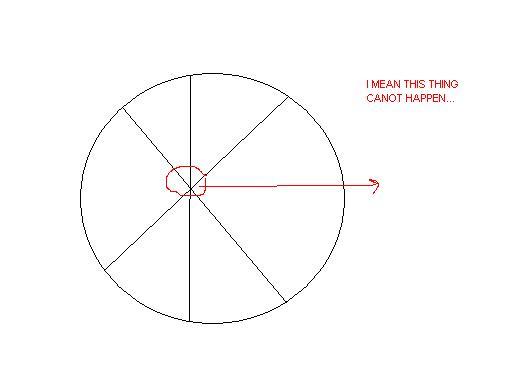"..note:no three lines intersect at a point....." isnt this obvious if they form triangle!!!
hey guyys a nice sum....
plz try it outt
if there r n points on a circle....no. of triangles that can be formed by joining them.....note:no three lines intersect at a point.....[the answer iss not nC3
u have to consider the small triangles forming too....
-
UP 0 DOWN 0 1 11

11 Answers
but archana.. some of them will form a triangle outside the circle
@nishant bro::arre nishant bhaiya...kuch toh solution likhiye....
@archana::i mean this case wont occur
The number of such triangles is
nC3 + 4 nC4 + 5 nC5 + nC6
Here,
nC3 counts the number of triangles having all three vertices on the circle
4 nC4 counts the number of triangles having two vertices on the circle
5 nC5 counts the number of triangles having one vertex on the circle
nC6 counts the number of triangles having none of its vertices on the circle
can u plz explain how u got
4 nC4 counts the number of triangles having two vertices on the circle
5 nC5 counts the number of triangles having one vertex on the circle
nC6 counts the number of triangles having none of its vertices on the circle
i mean the logic behind dis part....
Rohit.. take the case when 2 vertices are on the circle..
The third vertex is a point outside the circle which can be chosen as a point of intersection of any 4 points on the circle...
Now can you understand teh logic?
Clarification in the above post:
By "outside" I mean not on the circle but 'inside' the circumference of the circle :P
o yes....but the two points on the circle can also be choosen in nC2 ways...so we should write
nC2 * nC4
Let Tn denote the no of triangles which can b formed using
the vertices of a regular polygon of n sides. If Tn+1-Tn=21,then n equals
If the (n+1) nos a,b,c,d...be all different and each of them a prime
no,then the no of different factors (other than 1) of
am.b.c.d....is